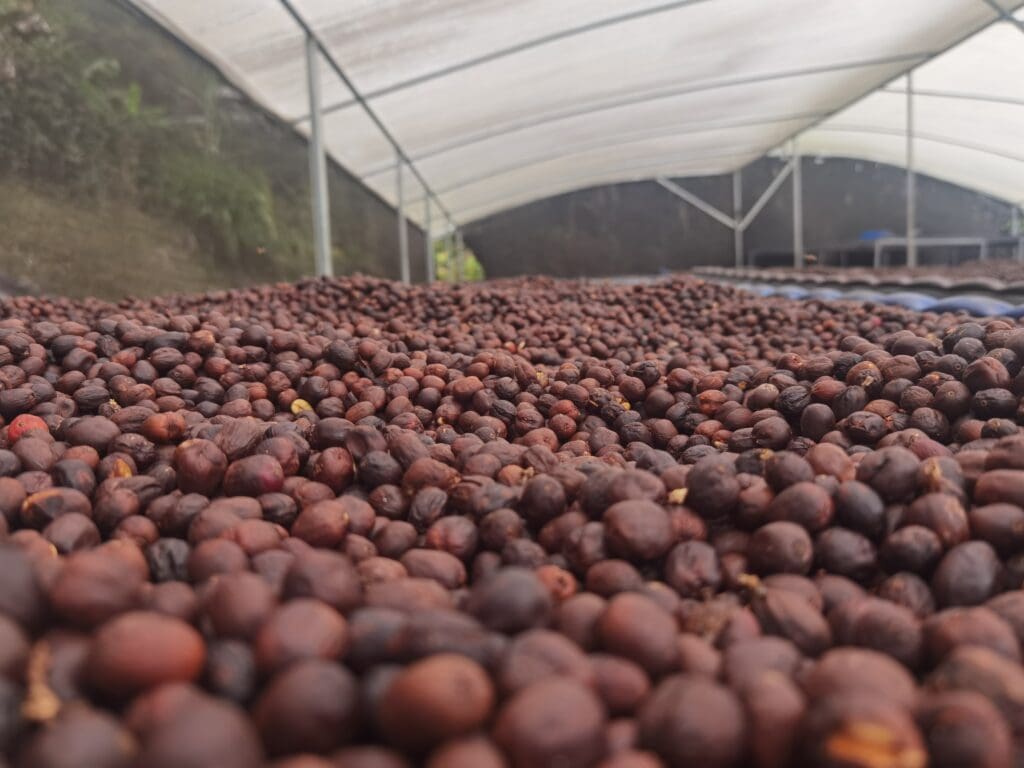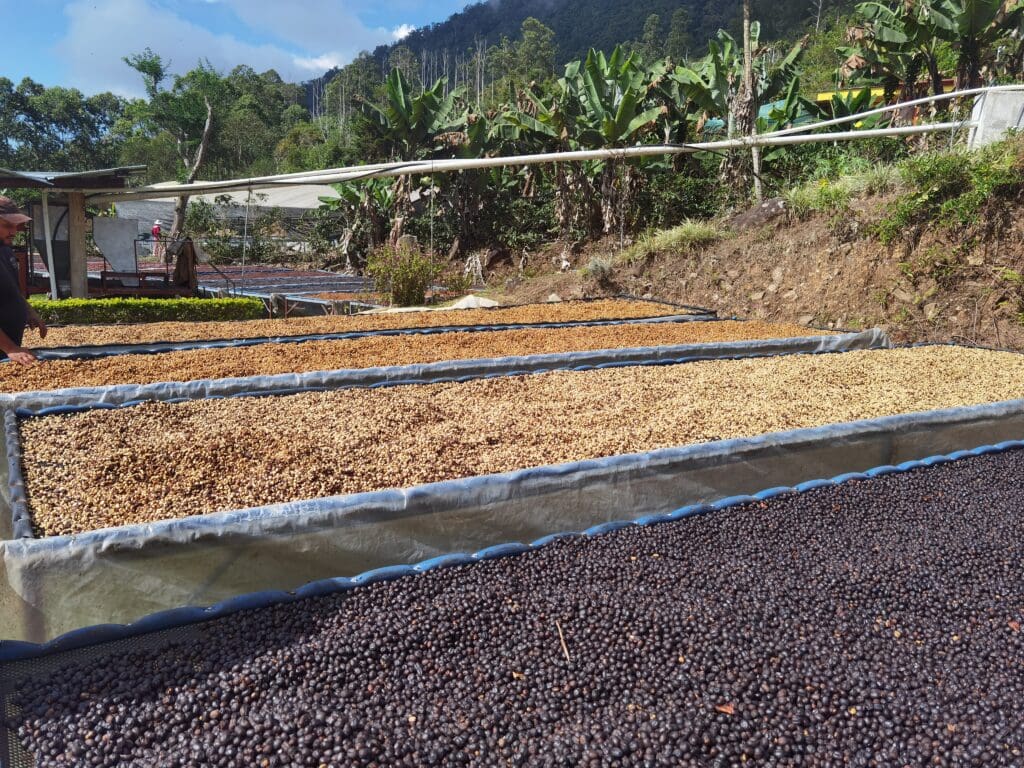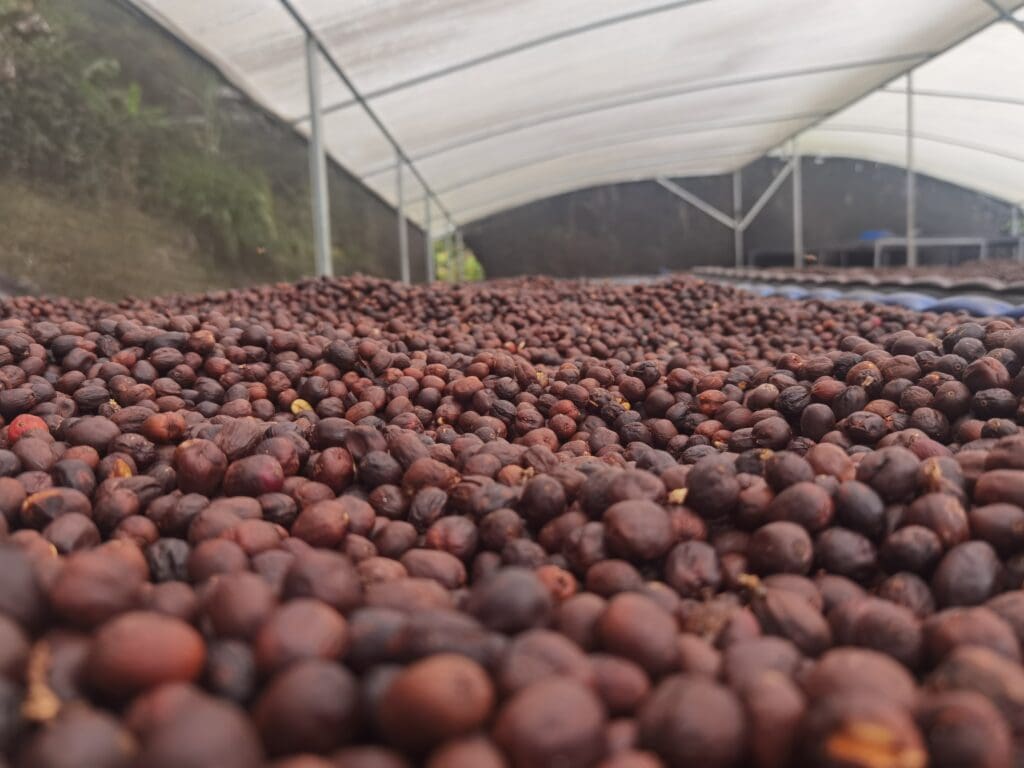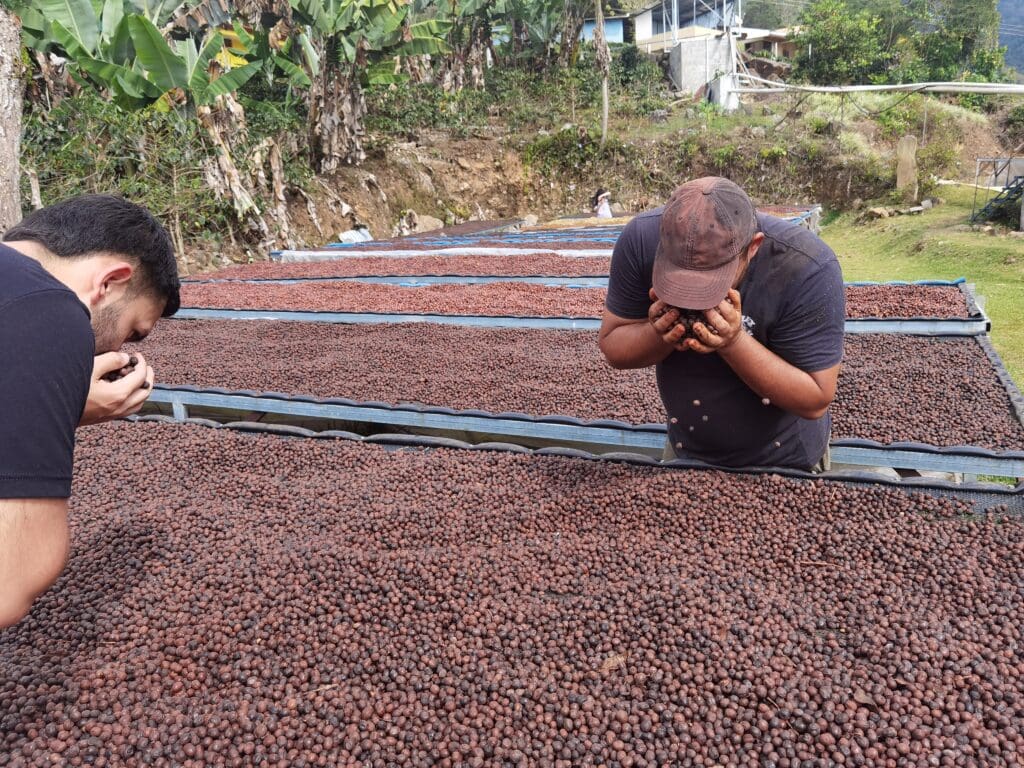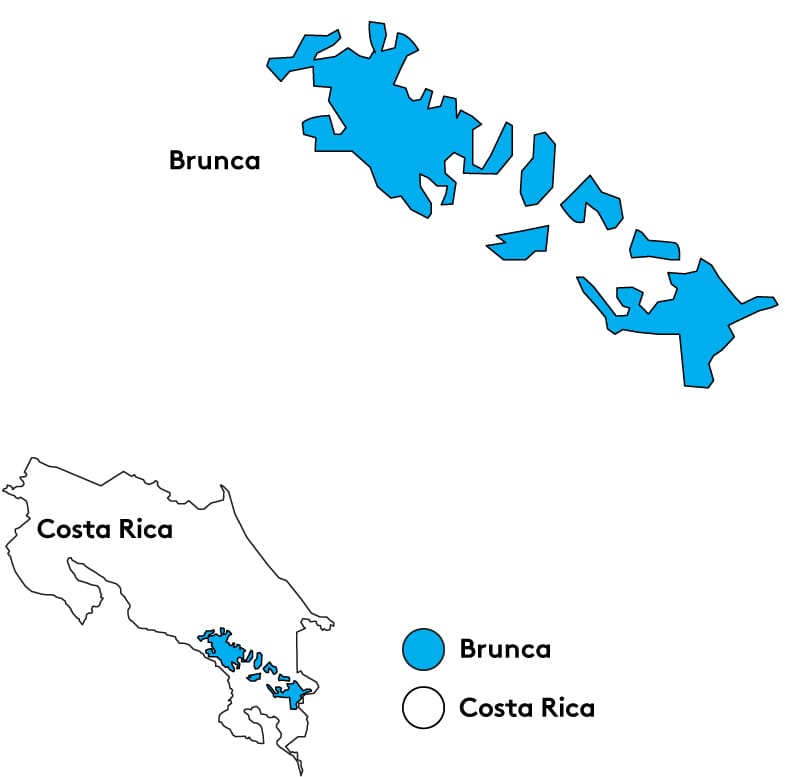Region
Brunca
The Brunca growing region is located in the southern area of Costa Rica and comprises the two youngest coffee producing cantons in the country, Coto Brus and Pérez Zeledón. The region is bordered by Panama to the East, the Pacific Ocean to the South and West, and the Cordillera de Talamanca mountains—home to Chirripó, the tallest peak in Costa Rica—to the North.
The Coto Brus canton experiences average temperatures of 18–26°C and a mean elevation of 955 meters. Coffee cultivation here began in the 1950s when Italian settlers and local Costa Ricans established the first coffee farms in the area. Today, the economy of the canton revolves almost entirely around coffee, with 2,600 producers across 75 communities cultivating the crop.
Pérez Zeledón canton, located in the northwest of the Brunca growing region, has developed an economy characterized mostly by agriculture, livestock, trade, industry, and tourism. The primary agriculture in the canton today is sugar cane and coffee, with other fruits and vegetables cultivated as well. Pérez Zeledón’s geographic positioning is prime to connect the Costa Rican capital of San José with the southern areas of the country, especially regions which border Panama such as Coto Brus.

